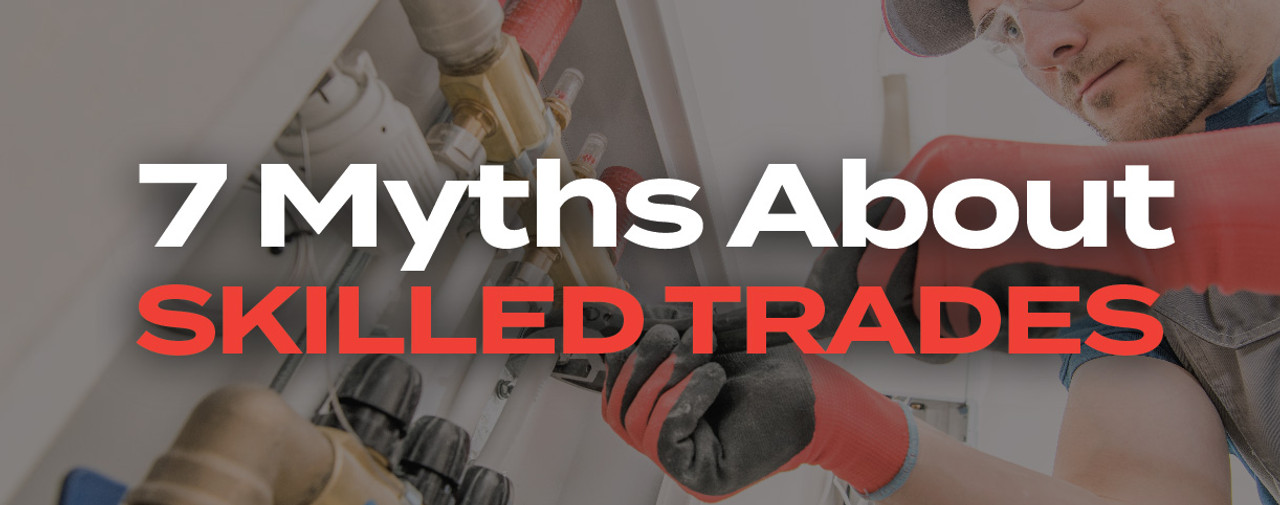For decades, a college education has been portrayed as the only way to get a “good” job. This may have been true when few people went to college, but with a majority of high school graduates moving on to higher education, this is no longer the case.
Instead, a return to skilled trades jobs has become more popular. There are some long-standing myths about skilled trades jobs that many students may have been taught. Here are 7 of those myths, and the real truths about them.
Myth #1: You can’t make much money
It’s a common belief that those in the skilled trades do not make as much money as those who have college degrees. However, as with any career, further education and expertise can open the door to more lucrative opportunities. These jobs also lend themselves well to entrepreneurs who want to start their own business.
Myth #2: You don’t have to be very smart
Just because you don’t need a college degree for a job in the skilled trades does not mean that you don’t need training or certifications beyond high school. Depending on the role, employees may require detailed knowledge on the use of machinery, technology, and tools, as well as how to solve complex problems in their area. They’ll also need a willingness to learn, creative thinking and people skills, a solid work ethic, and other soft skills.
Myth #3: These jobs are only seasonal
There are a wide variety of jobs in the skilled trades, so work is available all year long. HVAC technicians have plenty of work to do in the spring and summer, with air conditioning units, and in the fall and winter with heating systems. Electrical, plumbing, and many other careers will have work to do year-round no matter the climate.
Myth #4: Only men work in skilled trades
As with many industries, women are starting to become a greater part of the skilled trades. In fact, they now make up almost 11% of construction workers. Plus, they have the lowest pay gap in any US industry.
Myth #5: Skilled trades jobs require a lot of physical labor
It’s true that many skilled trades jobs are quite physical, but not all of them. For some workers, this is actually preferable to sitting at a desk all day, indoors, working alone. For those that do prefer a less physically demanding job, there are many roles in project or facility management, sales, department leads, design, production management, and more.
Myth #6: You can’t advance your career
Many industries are seeing more available positions post-pandemic, and the skilled trades are no different. Though one may start out as a novice on a work site, that same person can learn, grow, and become a project or site manager. There are currently hundreds of thousands of available positions, and hundreds of thousands more are anticipated to become available in the next few years.
Myth #7: It’s not fulfilling work
Building a hospital in a rural town, installing plumbing for an elder care facility, and wiring electricity for a school are all jobs available in the skilled trades. These workers are solving real-world problems and helping others live better lives. Even better, their services are still in demand during a recession, so there will always be work available.
Have Your Students Considered a Job in the Skilled Trades?
The most common phrase in any classroom is “when am I going to use this in real life?” When you present students with career options beyond the classroom, it’s easier to answer this question in a way that satisfies and excites them! Bring more emphasis to these careers in CTE and help your students build lives they can be proud of!

